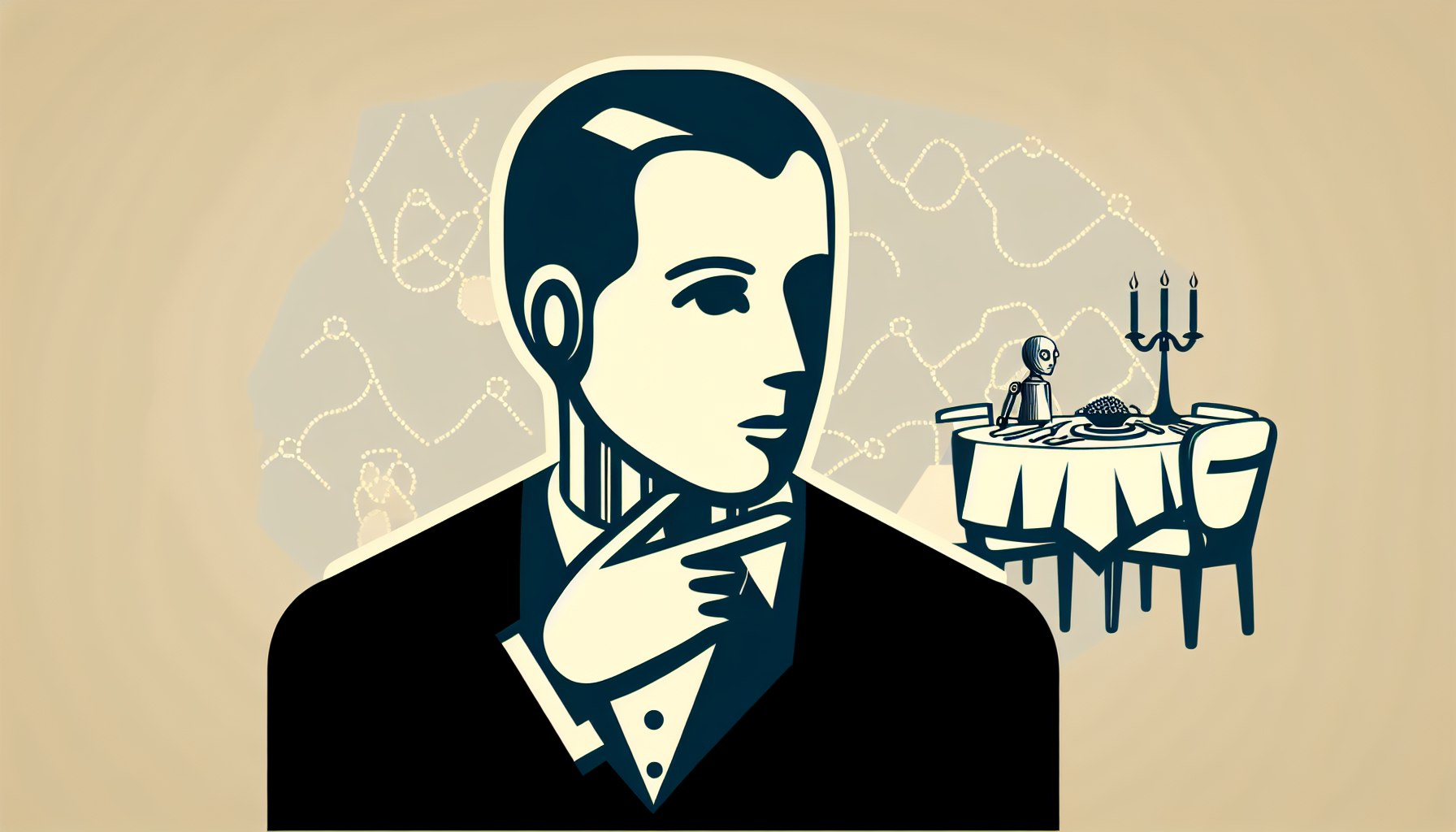Artificial intelligence (AI) has long been the subject of both wonder and worry. It’s a fascinating paradox: a non-human entity deeply intertwined in our very human lives. As AI systems evolve from obedient servants to more independently reasoning agents, they are bound to influence not just what we do, but who we are. It’s like inviting a particularly enigmatic guest to your dinner table—one you can’t quite decide is your most brilliant conversationalist or the quiet guest who might one day rearrange your furniture when you’re not looking.
AI systems have already infiltrated our lives in overt and covert ways, crafting how we interact with the world and shaping the identity of individuals and societies alike. The critical question isn’t just whether AI will affect our identity, but how. Are we at a juncture where our very concept of identity—what it means to be human—is being reshaped by algorithms and code?
The Mirror of Identity
AI has often been likened to a mirror—one that reflects human behaviors, decisions, and ethics back at us. Yet, this is a mirror that doesn’t just passively reflect; it actively distorts and enhances features, much like a funhouse mirror. It picks up on our preferences and biases, learns from them, and occasionally amplifies them in unexpected directions. For example, AI-driven social media algorithms feed users content based on their previous likes and shares, sculpting our perception of the world around us.
This raises a rather peculiar question: if AI becomes our looking glass, and it is a looking glass of our own design, are we merely staring at an enhanced version of ourselves or creating a new model of identity altogether? Does the reflection become so distorted that we begin to lose sight of who we “truly” are? Perhaps AI is less of a mirror, and more of a Picasso painting—a mixture of familiar shapes in decidedly unfamiliar compositions.
Identity and the Algorithm
In the age of AI, the algorithm holds unprecedented power. They are like the composers of an enormous symphony of data, determining not just the tunes we hear, but the tunes we think we want to hear. An AI-powered recommendation engine often nudges us toward new content, whether in movies, music, or news. These algorithms act as unseen hands, gently shaping our tastes and preferences. When our choices derive from datasets and pattern recognition, we might begin to question where their influence ends and our free will begins.
Is a curated identity any less authentic if it’s influenced by AI? Here, one might recall the existential musings about authenticity: if I’m basing who I am on a set of external influences, can I still be speaking of an authentic ‘self’? Or perhaps in this digital age, authenticity is merely a construct within a dynamic algorithmic framework—a new-age koan for the philosophers to muse upon.
AI and Philosophical Debates
The introduction of AI into the realm of human identity brings old philosophical debates back to the fore, replete with new, shiny problems for us to ponder. For instance, Descartes famously declared “Cogito, ergo sum” (I think, therefore I am). But what happens if AI begins to think in ways that mimic human cognition? If an AI can generate original thoughts, does it then have a sense of identity or being? And what does that imply about our own sense of identity? Are we defined by our thoughts or by something more intrinsic?
Further, let’s not forget the perplexing debates around conscious experience. Philosophers have long wrestled with the problem of other minds, questioning whether we can ever truly know the experience of another sentient being. With AI programs passing increasingly sophisticated versions of Turing tests, the philosophical quandary deepens: if an AI can simulate conversation so convincingly, how should we evaluate its awareness or consciousness?
Becoming Cyborgs?
AI’s integration into our lives might be leading us toward a cyborg existence, in which human identity incorporates digital elements as a core component rather than a mere accessory. Consider smartwatches or virtual assistants, once external gadgets now seamlessly embedded in our daily routine. This fusion brings up fascinating questions: are we witnessing a gradual evolution of identity from purely biological to a hybrid form where technology plays an inseparable role?
In one sense, this sounds like science fiction sprinkled with doses of Orwellian caution. Yet, it’s a reality slowly settling into our everyday life. We might not have literally implanted chips (yet), but our reliance on AI and technology hints at a very cyborg-like evolution. In this narrative, AI ceases to be an external force crafting our identity and instead becomes an internalized feature defining us in new and compelling ways.
Conclusion: Dance, Don’t Fear
Ultimately, the role of AI in shaping human identity is both an opportunity and a challenge. As in any significant relationship, there’s a dance to be learned—between retaining our individuality and embracing the insights and enhancements AI can offer. AI’s role in identity formation may be less about dictation and more about co-evolution, where AI and humanity grow in tandem.
As we stand on the precipice of this brave new world, perhaps a sense of humor will serve us well. After all, if AI does begin to redefine identity, at least we can find some solace in knowing we were creative enough to redefine it first—and maybe, just maybe, create algorithms with a penchant for comedy.

Leave a Reply